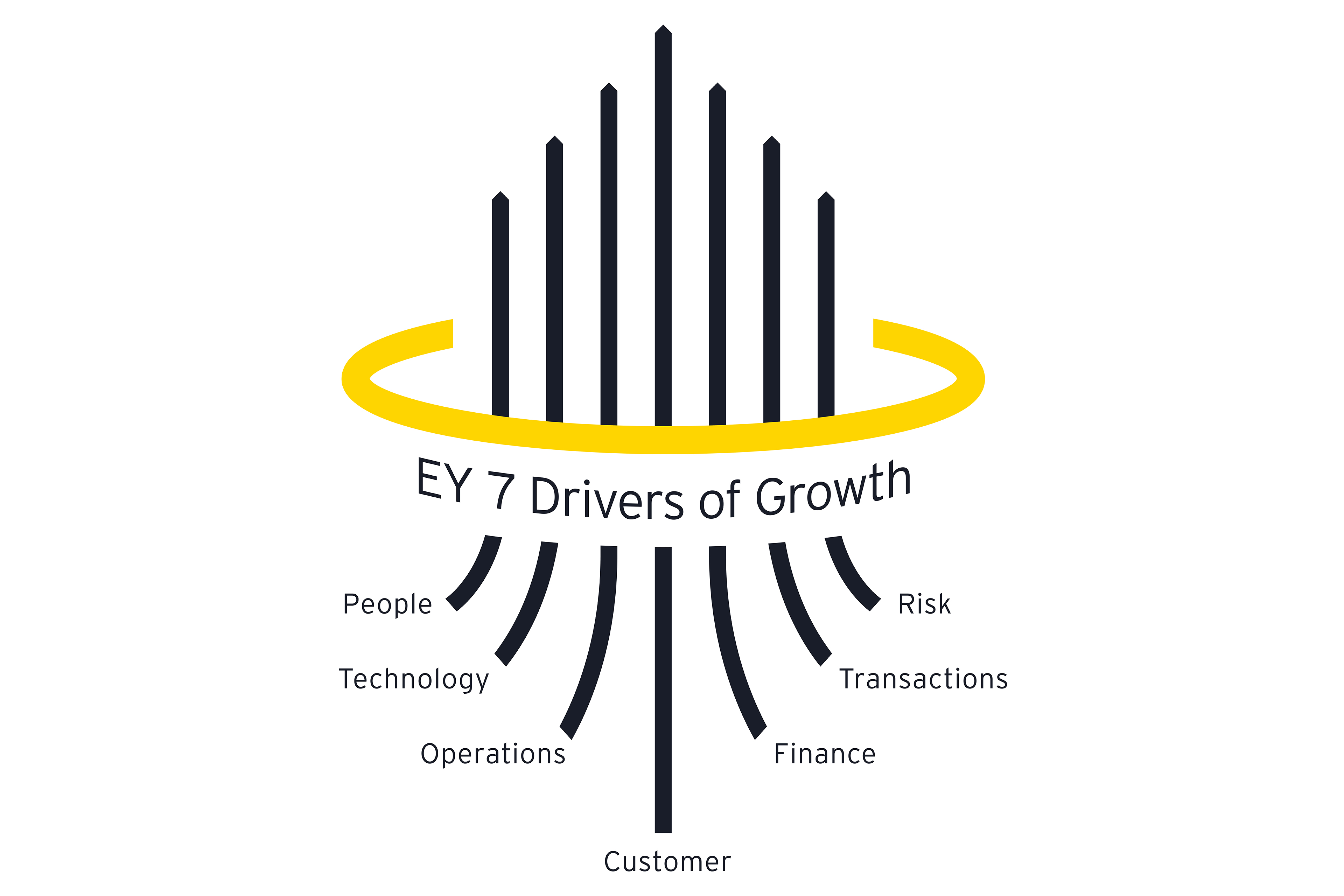EY refers to the global organization, and may refer to one or more, of the member firms of Ernst & Young Global Limited, each of which is a separate legal entity. Ernst & Young Global Limited, a UK company limited by guarantee, does not provide services to clients.

Entrepreneurial businesses globally are rethinking their people strategies in response to evolving employee behaviors and expectations.
In brief
- Private businesses are aligning their resource requirements with future business objectives.
- Talent retention and reward strategies are a priority in the era of the Great Resignation.
- For a truly effective people strategy, business leaders should carefully examine the potential disconnect between their priorities and those of their employees.
Private enterprises rely heavily on the commitment, passion and talents of their people in order to succeed. Given the importance of people to growth, how can private enterprises reshape their strategies to unleash the full potential of their workforce? EY Private’s analysis of over 1,300 recent strategic growth plans, created by the leaders of private companies, highlights the following five people-related themes as top priorities for entrepreneurial businesses globally:
1. Aligning resource requirements with future business objectives
Today, private enterprises are revising their growth strategies in response to the opportunities and risks presented by the post-pandemic business environment and rapidly changing economic and geopolitical circumstances. New strategies will often require them to source new skills. Two areas seem to be particularly high on the C-suite agenda:
- Sourcing data- and technology-related skills and competencies to be able to leverage the technological opportunities that can drive growth.
- Sourcing new leadership competencies to build the required leadership team to successfully deliver on their strategy and take the business into its next phase of growth.
2. Talent retention
Like other organizations, private enterprises are affected by the Great Resignation that has followed the pandemic, as well as the ongoing skills shortages in many sectors. According to the EY 2022 Work Reimagined Survey (which surveyed 17,000 employees and 1,575 employers across 22 countries), nearly half (46%) of employees at private enterprises say they are likely to leave their employer in the next 12 months. This represents a significant rise from 2021, when just 7% said they’d be unlikely to stay. Already 67% of private company employers state that staff turnover has increased over the past year, hence the increased priority given to talent retention programs.
3. Rewards
The Work Reimagined Survey found pay to be the number one determinant of whether an employee chooses to stay in a role or change jobs. Private enterprises should therefore consider whether their current pay rates give them the best chance of attracting and retaining talent in a highly competitive skills market. At the same time, they have an opportunity to think not just about how much they reward people, but also what they are rewarding them for – in terms of both output and the behaviors they demonstrate. Total reward strategies – which combine financial compensation with other customizable benefits, such as flexible working, extra vacation time and training budget – still have an important place in incentive schemes. Nevertheless, the pay element of these strategies requires close attention by private employers, or they risk losing skills.
4. Performance management
As private enterprises embark on change programs, they are looking to align their performance management with their revised growth strategies. Transformation has widespread implications for the responsibilities and working practices of both individuals and teams. Yet, too often performance management processes lag behind strategy change and overly focus on the performance of individuals, failing to recognize that it is the performance of teams that makes the greatest contribution to outcomes.
Also, it is not only outcomes that matter – behaviors are equally important, if not more so. Research by EY and the University of Oxford has found that in a successful transformation, leaders invest at the outset to build the conditions for success, both at a rational and an emotional level. Almost half (46%) of respondents from high-performing transformations had established a process that encouraged innovative experimentation, while also ensuring that failed experimentation would not negatively impact people’s career or compensation.
5. Entrepreneurial spirit
Private enterprises, and rightfully so, often pride themselves on the entrepreneurial spirit of their workforce, which enables them to innovate and progress. Nevertheless, maintaining this entrepreneurial spirit is not a given as the business scales and grows. It needs to be nurtured and developed, like any other business skill. Culture is key here – so a focus area for private enterprises is creating and maintaining a culture that encourages agility, innovation and the flourishing of new ideas.
Overcoming the strategic disconnect
While people have always been a major growth driver for private enterprises, the pandemic has further underlined their significance as a strategic asset. Increasingly, C-suites are asking how they can more effectively embed their people strategies into their overall corporate strategies, considering physical and mental wellbeing alongside topics, such as performance management, retention and reward, and strategic workforce planning. Yet, although C-suites acknowledge the people imperative, in practice, there often seems to be a disconnect between their priorities and those of their employees. Interestingly, new ways of working and flexible working arrangements were not part of the top five people-related priorities as found in the EY research when looking at over 1,300 private companies’ recent strategic growth plans. Furthermore, the EY 2022 Work Reimagined Survey found that around a fifth (22%) of private employers believe that all members of their workforce should return to the office five days a week. This is despite private employees, on average, wanting to work 2.9 days remotely.
Those employers who believe they are actively promoting hybrid work to attract and retain talent should note that too often their employees don’t see this. The research shows that often employers think way more positively about the flexibility built into their workplace than their employees do. Meanwhile, employers are also feeling less and less optimistic about the impact of the pandemic and the new ways of working on company culture, while the majority of employees feel that new ways of working are actually enhancing the culture. And while employees feel the new ways of working have sustained productivity, employers’ confidence is eroding.
Another issue relates to talent retention. While, as mentioned, talent retention has become a top priority for private company leadership teams, there is a question around whether employers are focused on the right means to achieve their retention objectives. Many private company C-suites are focused on considerations like improving team cultures, offering additional workplace perks and amenities, better healthcare programs, or enhanced learning and development opportunities. According to the Work Reimagined Survey, none of these make it into employees’ top five considerations when weighing up whether to leave the company and change jobs. Employees’ actual top three considerations are better pay (for 35% of employees), better job or career advancement opportunities (for 25% of employees) and enhanced flexibility in where they work (19% of employees).
It is clear that private company employers need to close the existing disconnect if they want to develop more effective people strategies that help to drive growth. Leading companies in this area seek continuous and true two-way dialogue with their employees: understanding each other’s needs, having an honest and open dialogue, and providing continuous feedback to each other, and not just top-down. Employers can use this dialogue, and the insights it will generate, as a basis for making vital decisions about their people – decisions that will serve as the foundation for future success.
Here are 10 thought-provoking questions for private company leaders to reflect on as they reframe their people strategy, thereby enabling people to be a growth driver for the business:
Food for thought - 10 key questions
- What does your two-way and continuous feedback process look like today?
- Do your people feel they are at the center of the business? How would they know they are your most important asset?
- What are your key resource requirements to be fully aligned with your future business objectives? And do you feel you have the right talent and resources?
- Do you feel your workforce is agile, purposeful and resilient enough to achieve your strategic growth ambitions?
- Is your company culture supporting your strategic objectives or hindering it? If it’s hindering strategy, what needs to change?
- Do you have the leadership team, with the right skillsets, competencies and experience to successfully take your business to that next level of growth?
- How strongly is performance management across your business tied to your corporate strategy? Does everybody and every team understand how they are contributing to the corporate strategy?
- Do you have the HR function to take the business to the next level? Or are you, as an entrepreneur, becoming the brake on your company’s success?
- Is your reward package competitive in the marketplace and an effective tool for attracting, retaining and motivating the brightest and the best?
- What are the three most important actions that need to be implemented to ensure you’re nurturing the entrepreneurial spirit within the business?
Summary
Scaling a private enterprise is a big and complex endeavor that demands concentrated effort in several key areas. In order to overcome the disconnect between their business priorities and those of their employees, entrepreneurial business leaders around the world look at five people-related themes. As well as people, however, it is critical to focus on technology, operations, customers, finance, transactions and alliances, and risk. Through our research and work with the world’s leading private enterprises, we’ve learned that it requires balancing the company’s maturity across these seven critical drivers to drive truly sustainable growth.
How EY can Help
-
Our 7 Drivers of Growth framework can help your business successfully execute your growth strategy over the long term. Find out how.
Read more
Related articles
Can AI advance toward value if workforce tensions linger?
AI success needs tech and talent to turn adoption into transformational impact, the EY 2025 Work Reimagined survey shows. Learn more.
How do you harness the power of people to double transformation success?
Read about how EY and the University of Oxford explored the emotional cost of failed transformations and what it takes to get them right.




